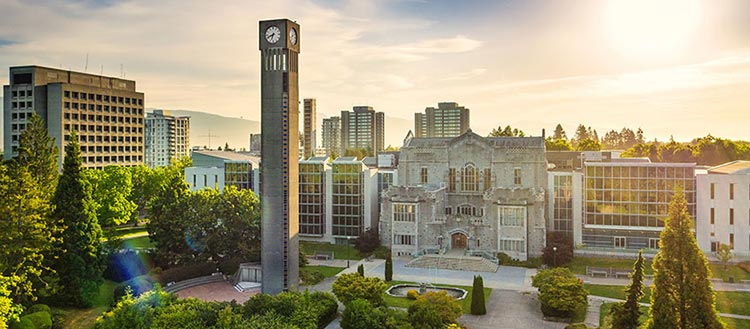

By Erin Catherall
With paper deadlines fast approaching, UBC Arts students are starting to feel the pressure. We all want to find the perfect library sources but sometimes our busy lives and lack of research skills can make paper writing challenging. In an interview with Carly Pansulla, Student Librarian, CASS (Centre for Arts Student Services) learned some useful tips in making library research efficient and successful.
For some students, just starting can be the most over-whelming and challenging part of paper writing. UBC Library has Summons, a search engine that provides a single access point to find the majority of UBC Library Collections.
Keywords
When searching for sources in the catalogue, Carly recommends students consider the different possibilities for key words. For instance, a student interested in finding a book on Northern Northwest Coast art will find very different results depending if he or she searches using the term “aboriginal”, “Indian”, or “First Nations”. Using a truncated symbol (?) before the plural ending of a word is another way to allow for a more in-depth search. For instance, typing “architect?” into the catalogue search bar, means you are searching for any word that includes architect, architecture, architects, architectural etc. Another strategy when searching is to look in the subject guide for key words and phrases. These alternative searches can help direct you to other valuable sources.
Primary Sources
One common request professors ask of their students is to include primary sources in their essays. According to Carly, primary sources are the direct evidence or firsthand accounts of events without secondary analysis or interpretation. A primary source is a work that was written or created at a time that is contemporary or nearly contemporary with the period or subject being studied. This includes personal records or documents, autobiographies or memoirs, visual materials such as paintings, photographs, sculptures, or published materials such as books, journals, or newspaper articles written at the time. It is important that students don’t get confused with secondary sources which analyze or interpret a historical event or artistic work. These sources often base their theories and arguments on the direct evidence found in primary sources. A secondary work discusses a topic after the time it was written.
Peer Reviewed Sources
Another essay requirement which is drilled into every student’s head is making sure that sources are always peer reviewed. Peer reviewed means that your source is a scholarly publication. The primary audience for these articles is field study experts and students; as a result, these articles are often more sophisticated and advanced than articles found in general magazines and popular publications. By reading the publication or the abstract details, students can figure out if the if the material has been peer reviewed. Knowing that a book has been published by a credited press (i.e. Princeton University Press) is often an indication that the document is a scholarly publication.
Wikipedia – Not a credible source
While Wikipedia can be a tempting resource for many students, it is never okay to quote this website in any essay or publication. This is because this website is not peer reviewed. Users do not know who posts the data or if the information is skewed in any way. That does not mean however, that you should not use Wikipedia for your paper. This database often suggests excellent books, journals and articles in its bibliographies. According to Trish Rosseel, Teaching & Learning Librarian at UBC, “Wikipedia is a great starting point for those who don’t know anything about a subject”. Students can begin their library research knowing a little more background information on their topics and can start by looking up any referenced publication titles.
If all else fails and you are in desperate need of assistance, checkout the library reference desks available throughout campus. “Each library focuses on a particular field of study and librarians are trained in those areas to help you,” said Carly.
For reference desk hours and locations look here: http://www.library.ubc.ca/home/about/branches/current-hours.html


